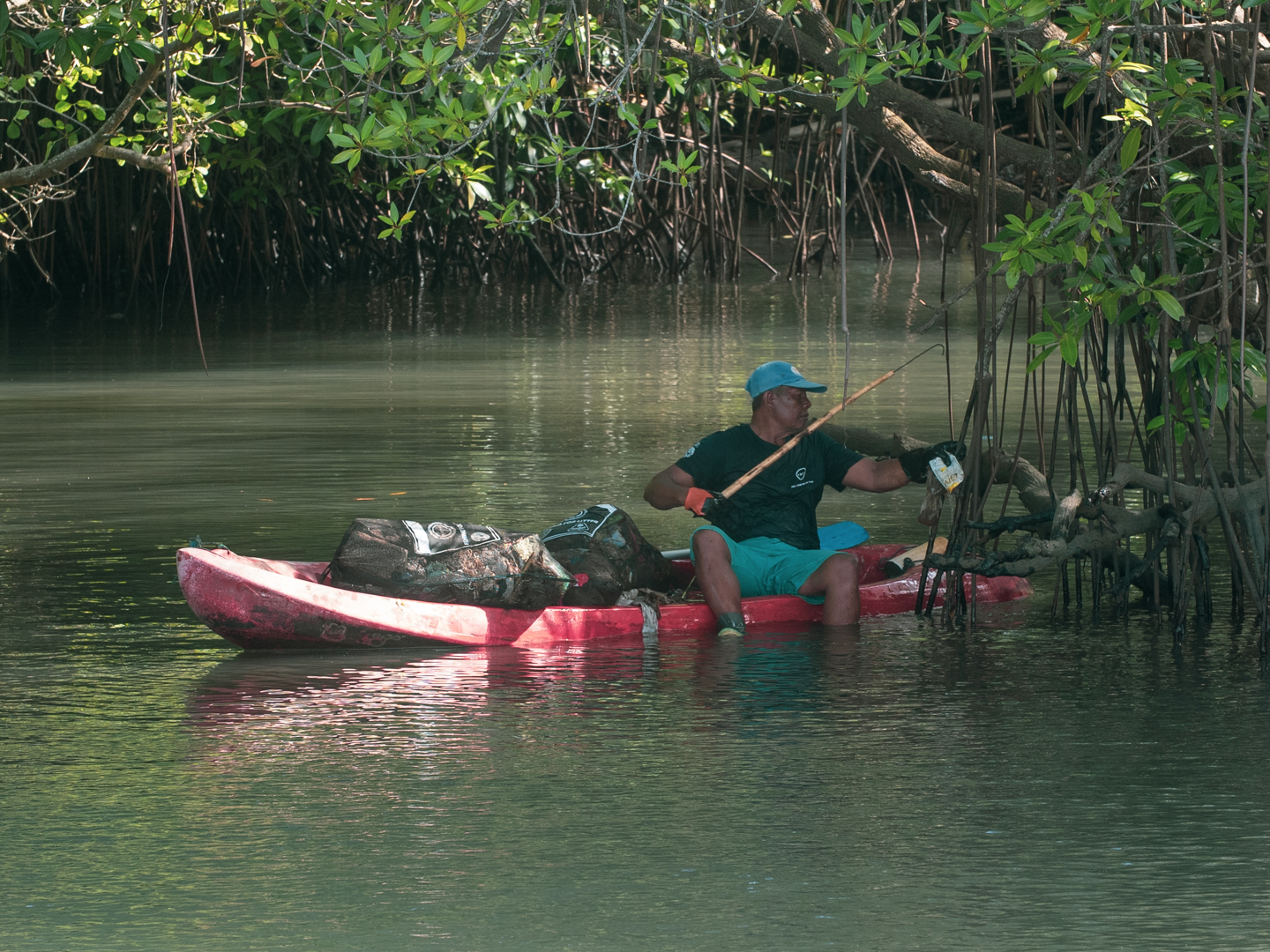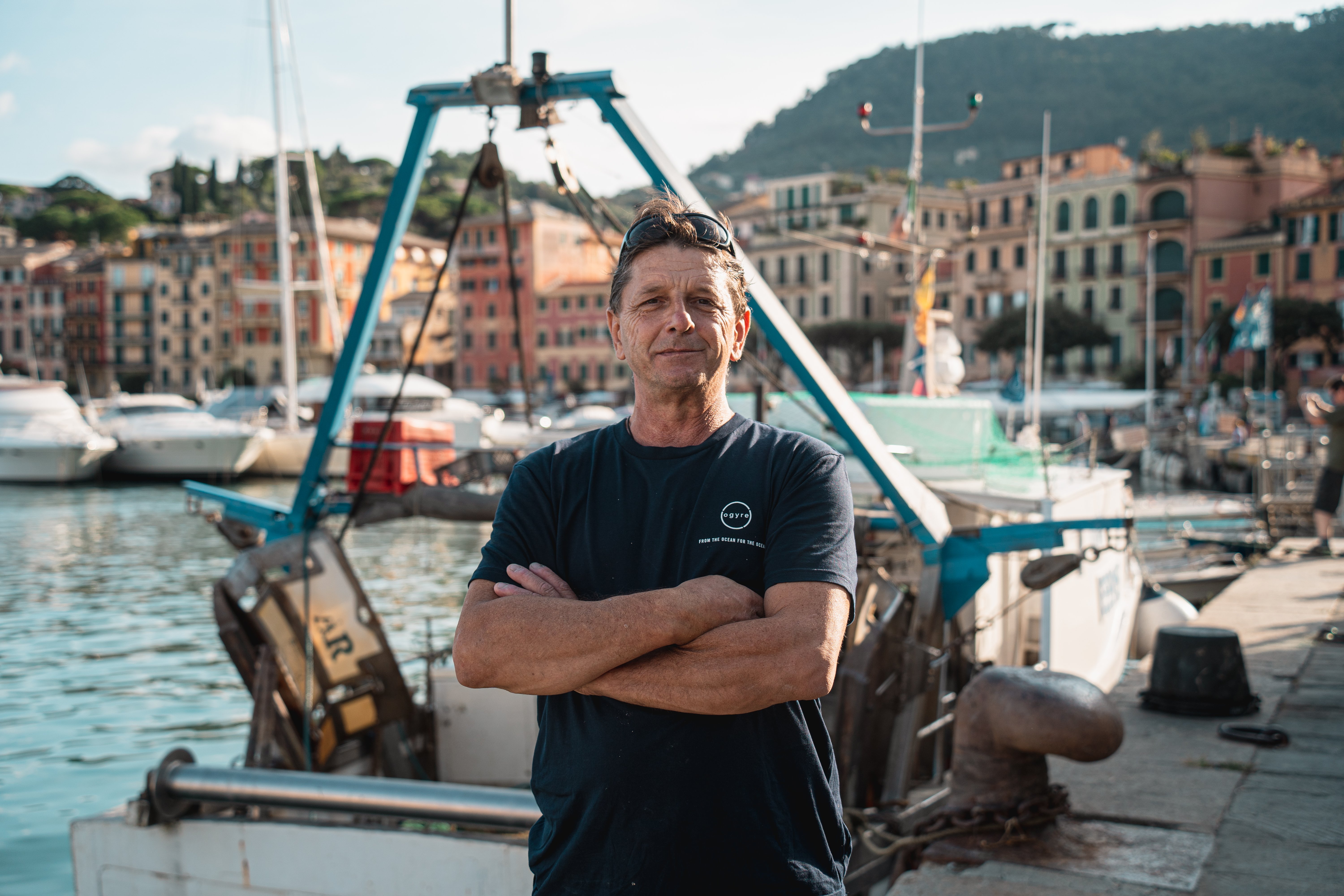One of the fishermen taking matters in their own hands to save Indonesia’s rich marine life.
It is home to over 3,000 species of fish and 600 different coral reefs. Its marine biodiversity is so significant that it is considered a global priority for conservation.
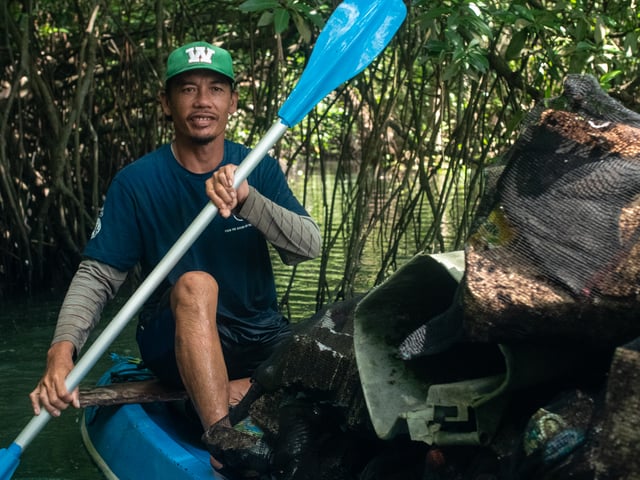
In addition to providing a peak at what paradise probably looks like, Indonesia’s marine ecosystem plays a crucial role in supporting the country's economy and providing food and livelihoods for millions of people. The fishing industry alone employs over 6 million people and contributes significantly to the country's economy. Many coastal communities rely on fishing for survival, with small-scale fishermen – like the ones we employ – making up the majority of the sector.
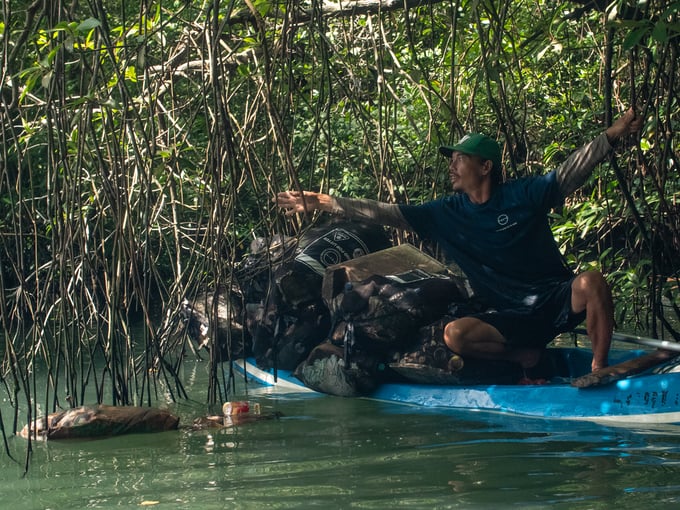
Unfortunately, Indonesia's marine ecosystem is facing a range of threats that put its biodiversity and the people who depend on it at risk.
Overfishing, destructive fishing practices, and illegal fishing are putting pressure on marine populations, leading to declines in catch and income for fishermen.
The use of dynamite and cyanide has led to irreversible damage to coral reefs, which are essential habitats for underwater life.
Speaking to our Indonesian fleet erases any shade of doubt that may be left in the quest for environmental regeneration. We must come together to support local communities in reversing the damages caused by excessive consumption and industrialization.
With a growing population of over 270 million people – and the consequent increased use of plastic products, as well as an inadequate waste management infrastructure – Indonesia has become the second-largest contributor of plastic waste in the world.
Moreover, the country's marine environment is also affected by oil spills, industrial waste, and agricultural runoff.
Climate change is also having a profound impact on Indonesia's sea life. Rising sea temperatures, ocean acidification, and sea level rise are damaging coral reefs and causing shifts in marine species distribution and behavior.
“Plastic pollution is like terrorism.”
Despite these challenges, there are efforts to protect Indonesia's marine environment. This is where experienced fishermen like Wayan Wirawan come into play. “Plastic pollution is like terrorism,” he says when asked to paint a picture of the situation of his cove. He’s been working at sea for more than a decade, and he’s seen the decline in catch first-hand.
“We used to fish out at sea, but now it’s not so good,” he continues, “so we fish in the mangroves.” On each trip he takes, he collects more or less between 15 to 20kg of plastic, an alarming figure given that he’s committed to this work almost everyday.
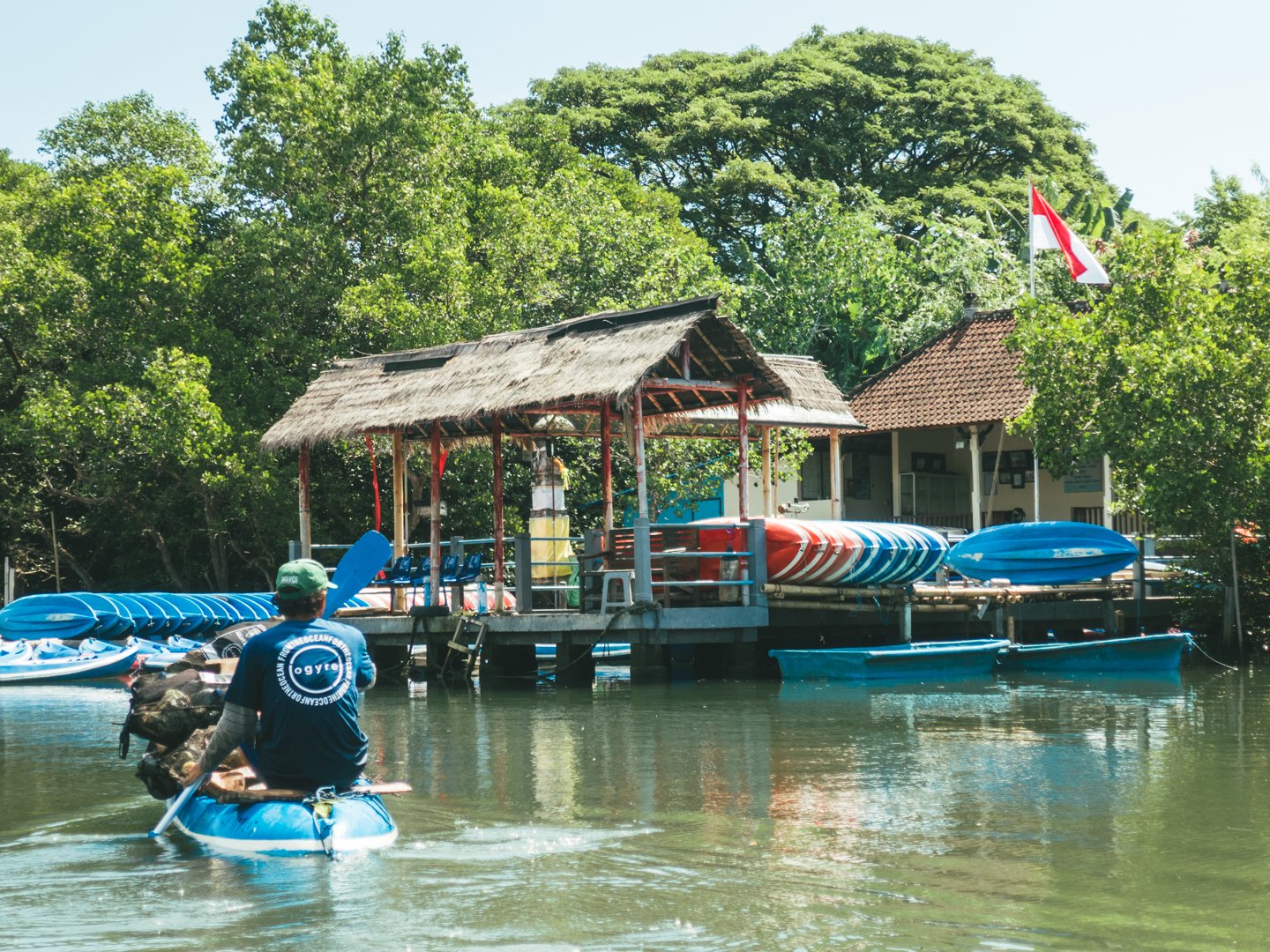
But it’s not all sad and gloom. Thanks to his work, and the effort of his colleagues, the fish is finally starting to come back.
If we continue to push in the right direction, we will see critical improvement in the health of Indonesia’s marine life and the flourishing of autochtonous nature happen quicker than we expect.
Ogyre is a lifestyle, a catalyst for change.
If you believe the Earth deserves better, then Ogyre is what you need.

